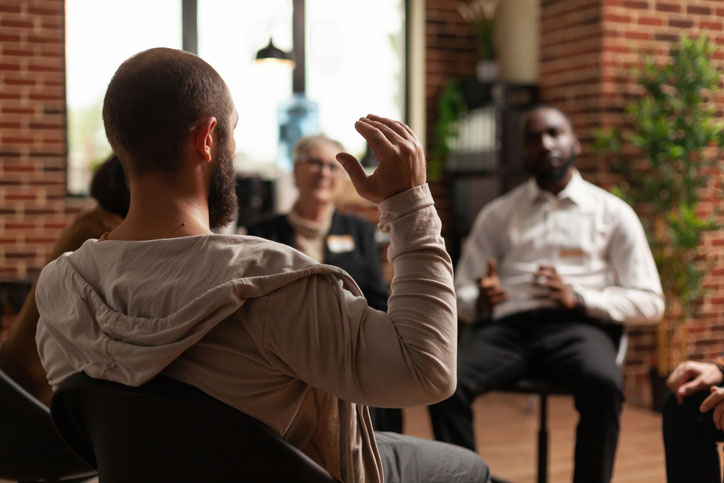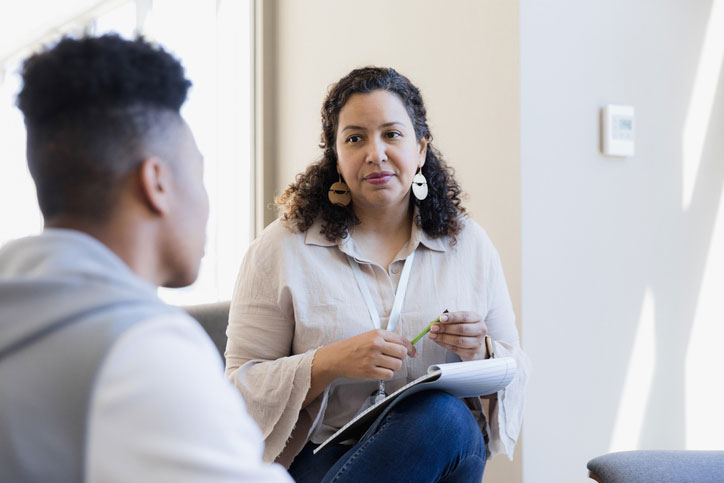Written by Sam Medley

In 2024, the CDC released a surprisingly hopeful press release about the state of substance use disorders (SUDs) in America. For the first time since 2018, overdose deaths had actually decreased.
While that positive trend seems to be true in Florida, too, the battle is far from over for marginalized populations and communities across the state. And the data tells that story.
There were more than 7,000 drug-related deaths in Florida in the first half of 2023. Like in other states, fentanyl and alcohol have wreaked unmeasurable havoc here. But as an important stop on international drug trade lines, Florida also battles issues with cocaine, meth, and a long list of other substances.
To make matters worse, recent changes to Florida’s Medicaid system have left many unable to afford methadone, buprenorphine, and other recovery-assisting medications. Even those who have put a lot of hard work into their recovery are white-knuckling through the psychological and physical turmoil of abrupt changes.
While settlements from pharmaceutical companies charged with fueling the American opioid epidemic are going to treatment providers in Florida, that’s only a short-term solution. Better access to treatment, more prevention programs, and state-wide policy changes are just a few things Floridians need to find hope. Substance abuse social workers are key to making all that happen.
The Big Picture of What Social Workers Do in Florida’s Recovery Network
Social workers in Florida are involved in every step of SUD treatment. They can be case managers who connect clients to housing, medication-assisted treatment, and other life-saving resources. They can work as administrators who oversee treatment programs, and advocates that work with legislators to ensure the funds are there to support those programs in the first place.
And in Florida, social workers can also work as substance use disorder counselors themselves, guiding clients and their families through the entire recovery process.
That may seem like a given, but that’s not true in every state. In some, you have to go through a completely separate process to become an addictions counselor. But in Florida, you can leverage your social work experience and education to take on any number of direct client care roles.
BSW Degrees Can Offer a A Gateway Into Frontline SUD Counseling in Florida, But Social Workers Take it Further
 With a Bachelor of Social Work (BSW) alone, you can fill important frontline support roles in substance abuse treatment settings. But no matter your exact title, your duties will likely include screening new clients, coordinating services with other professionals and agencies, and helping more experienced professionals create treatment plans.
With a Bachelor of Social Work (BSW) alone, you can fill important frontline support roles in substance abuse treatment settings. But no matter your exact title, your duties will likely include screening new clients, coordinating services with other professionals and agencies, and helping more experienced professionals create treatment plans.
However, if you want to actually perform substance use disorder counseling services with your BSW, you’ll have to become a Certified Addiction Professional (CAP) through the Florida Certification Board (FCB), a separate non-governmental agency from the one that issues licenses in social work.
The FCB is a nonprofit agency that offers a wide range of behavioral health certifications. Many employers in the state require FCB certification or heavily favor candidates who have it. But certification does not come with the same kind of protections and legal authority as you would get with Florida state-issued Licensed Clinical Social Worker (LCSW) licensure.
Earning CAP certification requires:
- Having a BSW or a similar counseling-related bachelor’s degree
- Completing 150 hours of classes on topics like documentation, client education, and case management
- Completing 100 hours of on-the-job supervision
- Completing 2,000 supervised work hours in SUD counseling
- Passing a final exam
As a CAP, you can provide advanced clinical interventions like cognitive-behavioral therapy. Your patients can even bill your services to insurance under Florida Medicaid.
CAP certification offers a shorter path to being able to provide substance abuse counseling services, but it also limits you to only providing those services specifically.
For the full scope of practice and clinical authority to assess, diagnose, and treat other common mental, emotional, and behavioral conditions that often intersect with substance abuse disorder, you’ll need a Master of Social Work and an LCSW.
In Florida, Getting Into Direct Substance Abuse Social Work Takes a Clinically-focused MSW and LCSW License

Yes, it’s entirely possible to qualify to become a Certified Addition Professional (CAP) in Florida with a BSW after meeting the experience and exam requirements. But the standard path into substance abuse counseling in the world of social work is to earn an MSW on the way to qualifying for the LCSW credential through the Florida Board of Clinical Social Work, Marriage & Family Therapy and Mental Health Counseling.
LCSW requirements exceed the requirements for CAP certification and come with a much broader scope of practice and more clinical authority.
LCSWs are the only social workers in Florida who can legally diagnose mental illnesses and the substance use disorders that often co-occur. They can also run their own independent practices, oversee other SUD treatment professionals, and use their clinical expertise to design treatment programs.
Qualifying for LCSW licensure through the Florida Board of Clinical Social Work, Marriage & Family Therapy and Mental Health Counseling involves:
- Earning a Master of Social Work (MSW)
- Taking classes on psychotherapy, human behavior, and clinical practice
- Completing two years of supervised clinical practice after graduation
- Passing the ASWB (Association of Social Work Boards) clinical licensing exam
Fortunately, many of Florida’s MSW programs offer clinical tracks into direct practice specifically designed to give students everything necessary for LCSW licensure.
Florida State University, the University of Central Florida, and the University of West Florida are among the universities here that have online and on-campus clinical MSW programs. If you want to focus specifically on substance use disorders, Florida Atlantic University offers both a clinical degree specialization and a graduate certificate in addictions.
Opportunities in Mezzo- and Macro-Level Substance Abuse Social Work in Florida
Frontline professionals are only one part of Florida’s SUD recovery workforce. It’s also made up of administrators who oversee treatment programs, public education specialists who run awareness campaigns, and researchers whose work influences public and organizational policy.
Community (mezzo)- and advocacy (macro)-oriented social work is vital to making recovery accessible to all.
However, there aren’t as many licensing and legal requirements at the administrative and community-level in Florida. That being said, though, these positions often require extensive knowledge of:
- Social service laws and procedures
- How social service organizations operate and cooperate
- Program evaluation
- Community evaluation
- Leading teams of counselors, doctors, nurses, and other professionals involved in treatment
For that reason, MSWs are still the degrees of choice for these types of positions in Florida. While not as common as clinical degree specializations, you can find MSW programs that prepare you for these roles.
If you’re interested in the community-based and policy-development side of substance abuse social work, Florida Agricultural and Mechanical University in Tallahassee offers an MSW with a focus on macro social work. Florida State University offers a leadership specialty online and on-campus in Panama City and Tallahassee. And if you want to become an administrator at an agency that offers advanced behavioral health and SUD treatment services, you can pursue an MSW through any of the state’s many clinically-focused programs.
Certifications For Substance Abuse Social Workers in Florida

In the intersection between recovery and social work, professional certifications can go a long way. In some cases, they can help you stand out for high-level or specialized roles. In others, they’re a legal requirement.
Certified Recovery Residence Administrator
Certified Recovery Residence Administrators (CRRAs) manage sober living homes, halfway houses, and other residential treatment communities. In fact, state-certified residential programs in Florida must be led by a CRRA.
You can become a CRRA through the Florida Certification Board. But while you only need a high school diploma or GED, you’ll also need to complete 100 hours of education on topics like screening, admissions, and recovery support — all topics you can learn about while earning a degree in social work. On top of that, agencies that offer residential treatment and clinical SUD care often require administrators to have an MSW.
Certified Master Social Worker
Offered through the Florida Board of Clinical Social Work, Marriage & Family Therapy and Mental Health Counseling, the Certified Master Social Worker (CMSW) credential is for macro and administrative professionals of all kinds. While you don’t have to be a CMSW to hold an administrative position, being state-certified can be a big advantage in such a big field.
To earn the CMSW credential, you’ll need to earn an MSW, take classes on topics like program planning and advocacy, and have three years of social service administration experience. After that, you’ll also need to pass a national certification exam.
Master’s Level Certified Addiction Professional
With a clinical MSW, becoming an LCSW isn’t your only option. You can also become a Master’s Level Certified Addiction Professionals (MCAP) through the Florida Certification Board. Like CAPs, these professionals can provide clinical treatment, but they can also diagnose substance use disorders and oversee other SUD treatment professionals.
If qualifying from scratch, you would need to hold a counseling-related degree like an MSW, complete about two years of addiction related work, and pass an exam. However, LCSWs can earn the MCAP largely on the basis of the education and experience they already have, and entirely if that education and experience was documented to include a substance abuse treatment component. Having both credentials can be a great way to take on particularly high-level administrative and frontline roles in SUD treatment and general social work.
Certified Clinical Alcohol, Tobacco & Other Drugs Social Worker
Offered through the National Association of Social Workers (one of the country’s biggest and most influential professional social worker organizations), this certification is for professionals with an MSW and two years of professional SUD treatment experience. Like the MCAP certification, this certification can be a great way to demonstrate your frontline treatment expertise.
Where Substance Abuse Social Workers Find Jobs in Florida

Helping people grapple with substance use disorders is a big part of any type of social work. And many of social work’s most important principles (like case management and crisis intervention) are central to the overall SUD treatment process.
If you’re well-versed in both fields, your career possibilities in Florida are wide open.
According to the US Department of Health and Human Services, Florida is home to almost 3,000 treatment providers including in- and out-patient facilities, residential treatment communities, and small, independent practices. While you can certainly comb through job postings from those individual providers, here are a few state-wide organizations that play important roles in Florida’s recovery community:
- The Florida Department of Children and Families (DCF). The DCF is Florida’s main government social service agency. Together with their local partners, they run mobile crisis response units, public education initiatives, and a wide range of other services that need administrators and talented treatment providers.
- Community-based Care Lead Agencies. While the DCF organizes and oversees social services in Florida, they mostly rely on 20 regional Lead Agencies to actually provide services. These organizations and their partners are a great place to find nonprofit and public sector career opportunities.
- Florida Department of Corrections (FDC). If you have a passion for transformative justice, the FDC’s Bureau of Substance Use Treatment offers services to inmates, probationers, and people trying to re-adjust to a new way of life after incarceration.
- The Florida Alcohol and Drug Abuse Association (FADAA). The FADAA is a nonprofit made up of individual treatment providers and organizations across the state. They’ve helped healthcare providers, the DCF, and the Department of Corrections all craft medication-assisted treatment programs. You can find a diverse selection of potential employers through their network.
But outside of recovery-focused providers, Florida’s hospitals, veteran services agencies, and advocacy organizations of all stripes need professionals to help the people they serve find hope in recovery.
